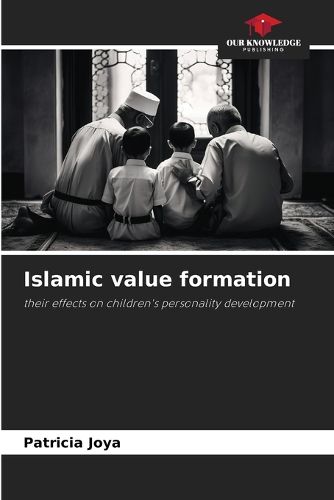Readings Newsletter
Become a Readings Member to make your shopping experience even easier.
Sign in or sign up for free!
You’re not far away from qualifying for FREE standard shipping within Australia
You’ve qualified for FREE standard shipping within Australia
The cart is loading…






The work examines the significance of Islamic values and moral education in Muslim family systems. It analyzes how aspects of faith affect the formation of a child's identity and what social challenges result from this. Psychological, sociological and spiritual-religious theories are included. The work is divided into several sections: First, psychological theories on the development of faith and moral judgment are examined. Subsequently, the relationship between religion and science is considered, whereby the complementary dimension according to Habermas is also addressed. Further focal points are Islamic identity patterns as well as religious practices and the transmission of values within Muslim families. The study shows that religious upbringing offers children security and structure, which promotes positive identity formation. At the same time, it is emphasized that social acceptance of Muslim values is crucial in order to avoid social conflicts and support integration.
$9.00 standard shipping within Australia
FREE standard shipping within Australia for orders over $100.00
Express & International shipping calculated at checkout
Stock availability can be subject to change without notice. We recommend calling the shop or contacting our online team to check availability of low stock items. Please see our Shopping Online page for more details.
The work examines the significance of Islamic values and moral education in Muslim family systems. It analyzes how aspects of faith affect the formation of a child's identity and what social challenges result from this. Psychological, sociological and spiritual-religious theories are included. The work is divided into several sections: First, psychological theories on the development of faith and moral judgment are examined. Subsequently, the relationship between religion and science is considered, whereby the complementary dimension according to Habermas is also addressed. Further focal points are Islamic identity patterns as well as religious practices and the transmission of values within Muslim families. The study shows that religious upbringing offers children security and structure, which promotes positive identity formation. At the same time, it is emphasized that social acceptance of Muslim values is crucial in order to avoid social conflicts and support integration.